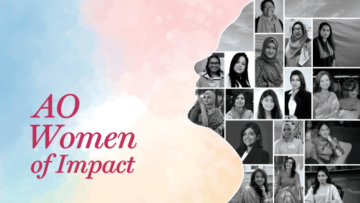
The first-ever fashion show at EU’s Parliament – held by Louise Xin, the award-winning Chinese-Swedish fashion designer and human rights activist – was held to draw attention to forced labour in the fashion industry.
Nine models of various races walked around the centre of a conference room, including two Uyghur women who were dressed in floor-length costumes made of etles, a silk fabric.
“Clothes are something we wear every day, every single one of us, but they are so much more than just pieces of fabric,” Xin told the attendees, including EU lawmakers. “They’re telling stories about who wears them and makes them.”
According to rights organisations, there are at least 27.6 million victims of forced labour globally, the majority of whom work in the private sector.
Nonetheless, some of the 1.8 million Uyghurs and other Turkic minorities detained in state-run camps in China were forced to work at nearby factories making cotton, yarn, and hair products used in braiding and weaving.
Members of the European Parliament and the Council of the European Union gathered to discuss and decide on a proposal to outlaw goods produced using forced labour as the fashion show was taking place.
A proposal to ban the import and export of products created with child labour or other forms of forced labour onto the EU market was released by the European Commission last September.
Following the fashion show, a panel discussion on how the European Parliament could adopt effective forced labour legislation was attended by representatives of labour rights organisations and other NGOs.
Labour rights organisations recommended that the EU be open and make import data available to the public, as does the US, so that civil society organisations and scholars can assist in identifying whether goods or shipments are connected to forced labour, she continued.
Members of the European Parliament voted a resolution in June 2022 referring to China’s systematic violations of Uyghur human rights as “crimes against humanity and a real risk of genocide.”
In order to prevent products created using forced labour in China’s Xinjiang Uyghur Autonomous Region, where state-sponsored forced labour is pervasive, from reaching the American market, US President Joe Biden signed the Uyghur Forced Labor Prevention Act into law in December 2021.






